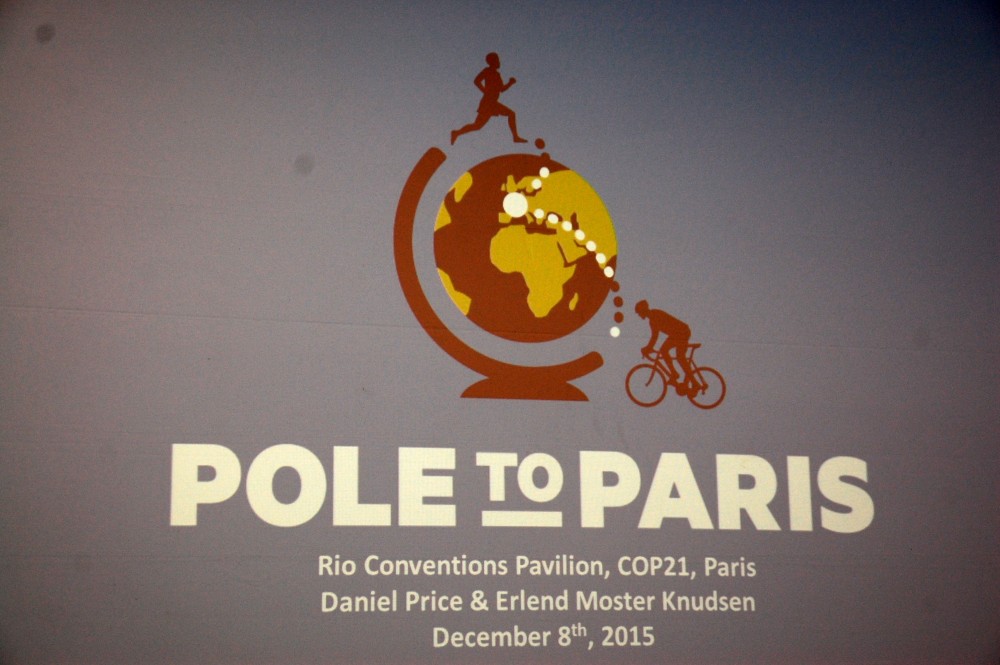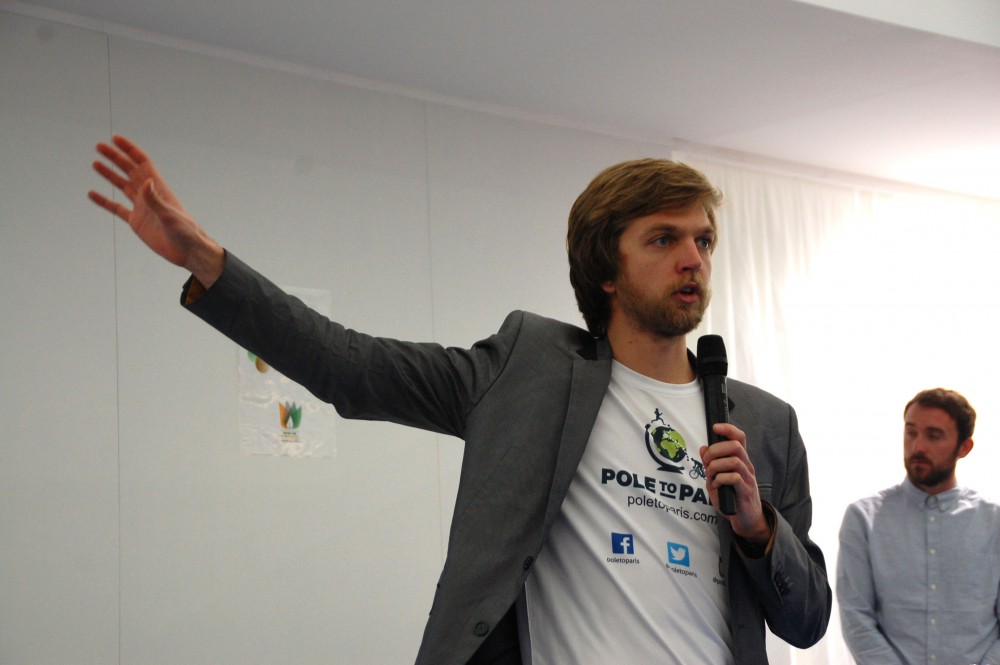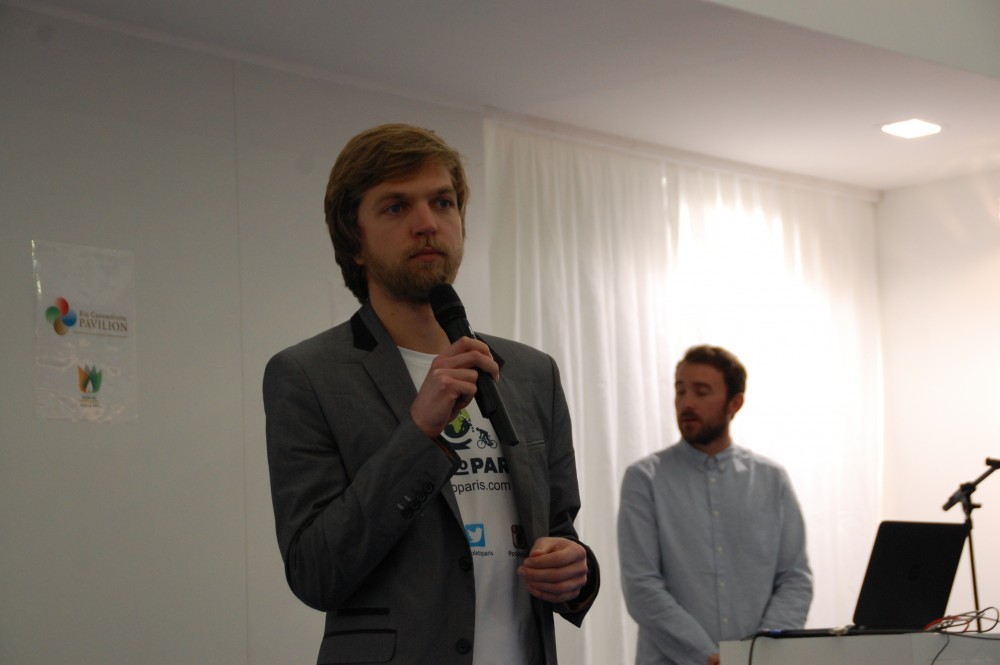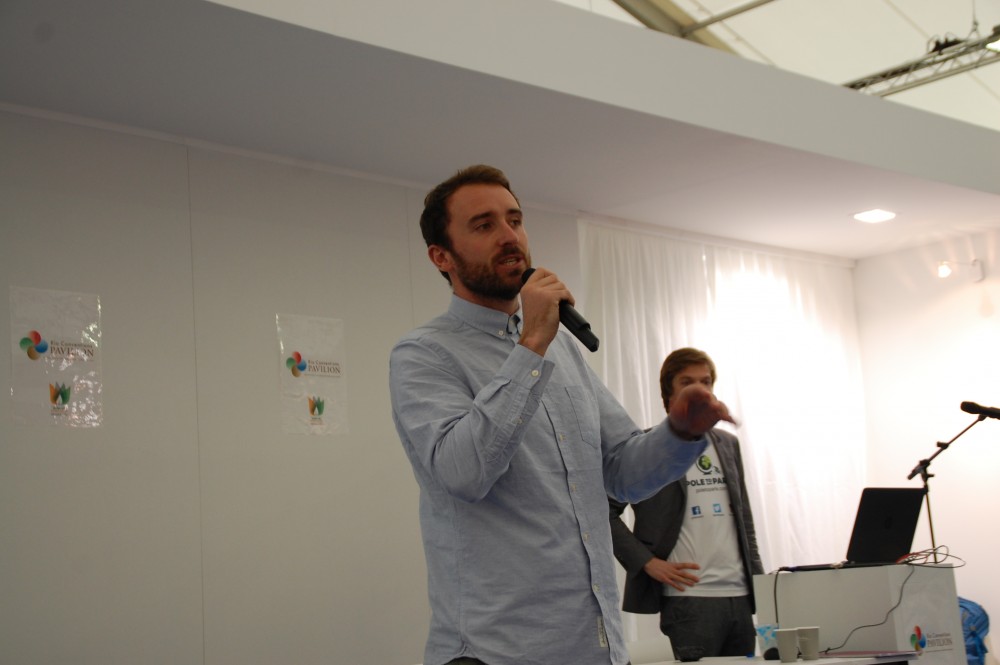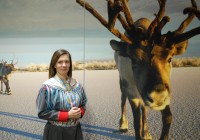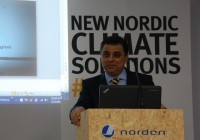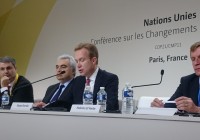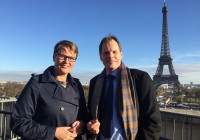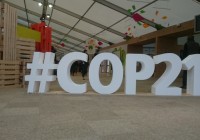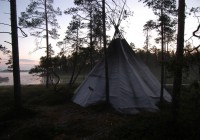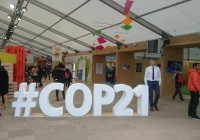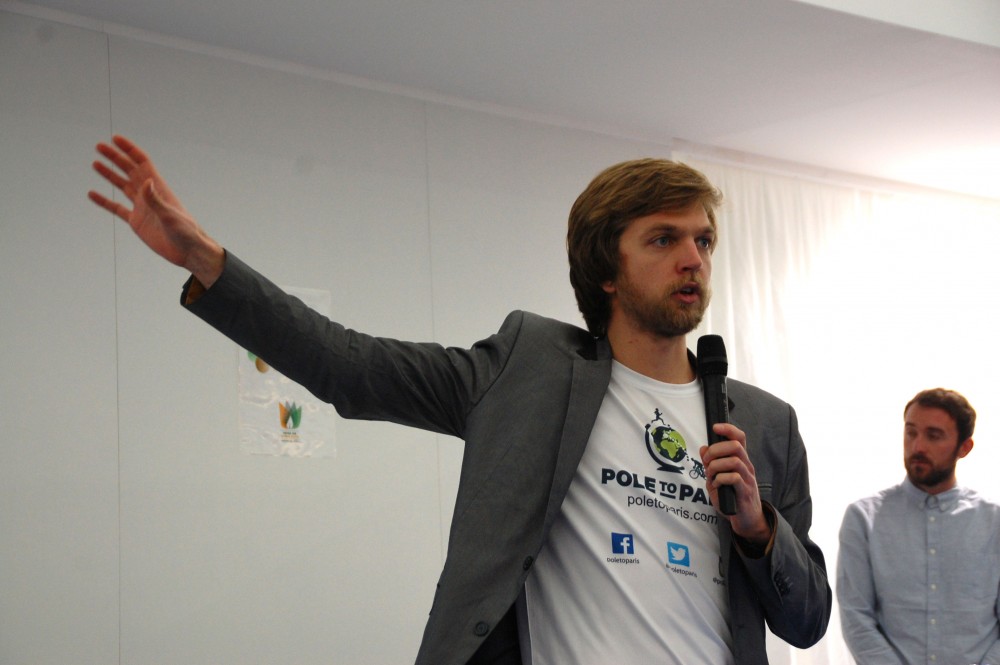
End of journey is only the beginning for polar scientists
ADVERTISEMENT
The Independent Barents Observer reported earlier about the two PhD candidates who took a break from their usual research work at the university in order to run and cycle to the COP21 climate summit in Paris in the project Pole to Paris. The project involves two parallel journeys, one run from Tromsø, Norway and one cycling trip from Australia. While travelling, the two scientists have lectured about climate change along the way to raise awareness about climate issues. Now the two main participants, Erlend Moster Knudsen from Norway and Daniel Price from Great Britain, have arrived in Paris and met for the first time since the journey started.
With a scientific background, both Moster Knudsen and Price are well aware of the severity of climate change, but they note that this is often not the case among the general public. Only 57% of the public believe climate change is human induced, while 99% of all research shows that it is. Communicating the message of climate change has therefore been the key goal of the race. “It’s much more than biking and running. It’s about raising awareness about climate change”, says Moster Knudsen.
The two scientists highlight the concerns in the Polar Regions where the most radical changes are seen. The Arctic has lost almost 80% of its ice volume already and if the Antarctic ice sheets were to melt this could cause sea levels to rise with up to 50 meters. In order to prevent such disastrous effects, 88% of the coal reserves must stay in the ground, but at the same time governments have interests in extracting the resources. “Coal is a huge resource in Australia and the government is doing pretty much all it can to extract it all”, says Price who started his cycling trip on the continent down-under.
Along the way, both Moster Knudsen and Price have witnessed the already serious impact of climate change and have collected stories about how it changes people lives. They tell about a Bangladeshi woman who had to move home because of today’s sea level rise and about Norwegian Sami people, whose reindeer can no long access food due to the ice crust on the ground. But the stories are not just accounts of environmental tragedies, they are threats to the global political stability. “To have peace you have to have a stable environment”, says Price. “If we don’t make cuts in CO2 we are going to leave the developing world behind.”
Moster Knudsen and Price emphasise the need to change the communication of climate issues. It needs to be spoken of not only at COP21, but in our daily lives. “People consider climate change as something distant”, says Moster Knudsen while underlining that we need to speak more about the climate change that is already occurring and not as if it was something which will happen only in many decades. They also mention the importance of personal stories in order to maintain media’s attention to climate change and the many negative accounts that dominate reporting on climate change may even have a counterproductive effect. “People react with far more depth to positivity”, says Price.
However Price and Moster Knudsen express no greater hopes for achieving the change that is needed in the ongoing climate negotiations. “Two degrees is too high”, says Price, referring to the ambition of a maximum temperature rise. He notes that this number was a result of policy and not of science. “It’s great with commitment but what we really need to see is action”, says Moster Knudsen.
They also think that scientists have to play a more active role in putting climate change on the agenda. “It’s absolutely absurd that scientists have to do this”, says Price, but he appreciates the trend of more public engagement among younger scientists. For Price and Moster Knudsen this journey to Paris was only the beginning and they both claim they want to continue their advocacy work for climate change.
ADVERTISEMENT
ADVERTISEMENT
The Barents Observer Newsletter
After confirming you're a real person, you can write your email below and we include you to the subscription list.


